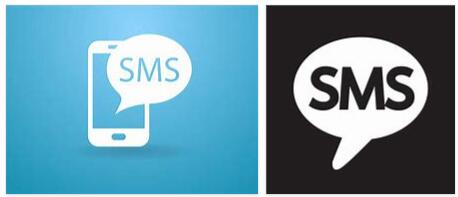According to abbreviationfinder, SMS is the acronym for Short Message Service. Available in digital GSM networks allowing to send and receive text messages of up to 160 characters to mobile phones via the message center of a network operator. Short messages can also be sent over the Internet, using an SMS website. If the phone to which the message is sent is switched off or out of range, the message is stored on the network and delivered as soon as the phone connects to the network again.
Technical definitions in GSM
In GSM there are several types of text messages: “pure” text messages, configuration messages (containing connection parameters for other services, such as WAP or MMS), WAP Push messages, MMS message notifications. In this article we will limit ourselves to what the GSMstandard specifies, since the transport of all types of SMS is carried out in the same way. In other mobile telephony standards, the message process is carried out differently, but the operation is transparent to the user.
SMS language and its abbreviations
Short messages are regulated by the economy of language using abbreviated language, numbers, symbols, onomatopoeic expressions and emoticons without any punctuation rule.
- Question marks and exclamation marks, perhaps influenced by English, are used at the end and their position.
- Repetition marks the emphasis like “no !!!!!!” highlighting the spirit of the issuer.
- The underscores_, the hash #, or the equals sign = are used as spellings of the language to construct phrases such as “I’m # pq I’m kansa2” for “I’m quiet because I’m tired.”
- The vowels disappear reducing themselves to the context of the words: “Kdms mñm?” By “Shall we meet tomorrow?”
- The phonemes “ch” and “ll” are transcribed to sounds “mxo”, “mucho” to type fewer characters. And “what” or “c” are written “k” as “tkro” for “I love you” or “ksa” for “house”.
- The “h” disappears and the “g” becomes “w” as in “wpa” for “pretty.”
- The numbers by mathematical signs, that is to say “sl2” for “greetings”.
- To reduce space a sentence is converted into a word like “ktp?” by “What’s wrong with you?”
- To synthesize you can replace a single letter or remove it as “tb” by “also” and the use of digits to replace words like “100pre” by “always”. Using your closest sound
SMS defines a type of young and nonconformist culture that seeks difference using communication as a symbol to establish social relationships through a code. Lately this type of communication has been spreading to other older generations who seek, in addition to the personal relationship, to influence the message in a community or group, transmitting ideas more widely and to more people. Wikipedia, dictionary of abbreviations for mobiles, among others, are portals and Web pages that include a glossary of the most used codes in SMS. However, if you do not understand an SMS that you receive on your mobile, Babylon can help you translate it.
Gigabyte. The term gigabyte is not part of the dictionary of the Royal Spanish Academy (RAE) but it is very common in computing. It is a unit of measurement that is symbolized as GB and that can have, according to its use, different equivalences. The prefix “giga” comes from the Greek, (“γίγας, gigas”) which means “giant”.
Its use
Reality shows that binary usage differs from decimal usage. The binary base is more common in the application of the concept for the design of software and hardware.
Gigabyte is also used to measure the storage and transmission capacity of a computer system. The capacity of hard drives (or hard drives), for example, is measured in gigabytes (which, in common parlance, is abbreviated as giga).
Interesting fact:
The first 1GB hard drive was created in 1980 by the IBM company, for the 3380 model, it was the size of a refrigerator, weighed more than 200 kilos, and cost more than $ 100,000.
29 years later there are already MicroSD memories, of a much smaller size, not counting the famous pendrives that already reach up to 256GB of storage, all this fits in the palm of one hand, at a price that goes from 5 dollars and without immense machinery as it was before.
Conversions
| Unit | Number of bytes | Kilobytes | Megabytes | Gigabytes | Terabytes |
| Byte | 1 | ||||
| Kilobyte | 1,024 | 1 | |||
| Megabyte | 1,048,576 | 1,024 | 1 | ||
| Gigabyte | 1073,741,824 | 1,048,576 | 1,024 | 1 | |
| Terabyte | 1,099,511,627,776 | 1073,741,824 | 1,048,576 | 1,024 | 1 |
Difference between Gigabyte and Gigabit
It is important to distinguish between gigabyte and gigabit:
- A gigabit is 1/8 of a gigabyte, as it refers to bits and not bytes. The symbol for gigabit is Gb or Gbit. Gigabit is generally used to name the transmission rate of a data stream or to describe bandwidth.
